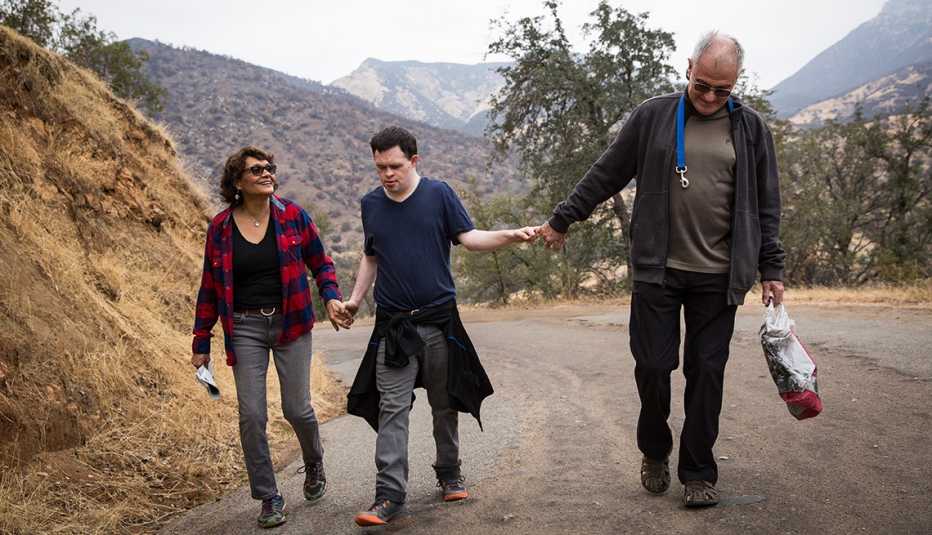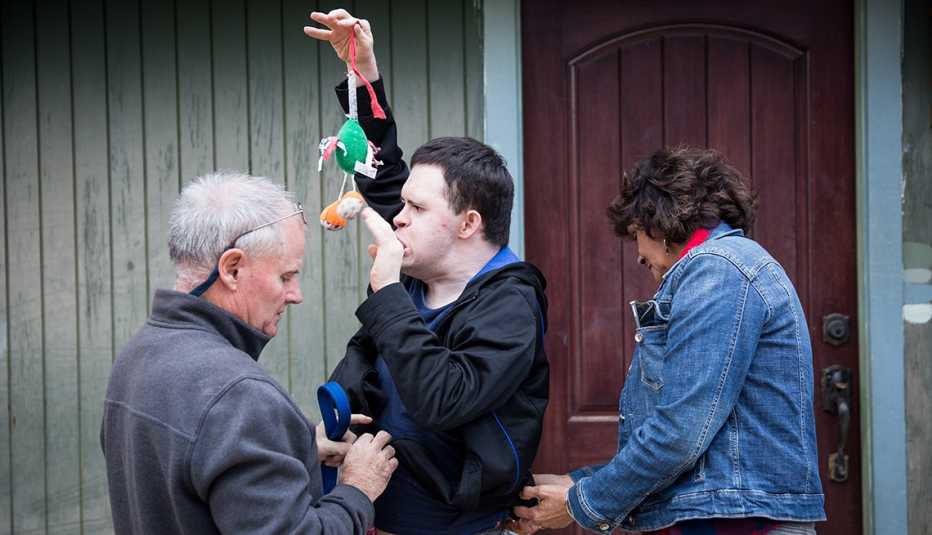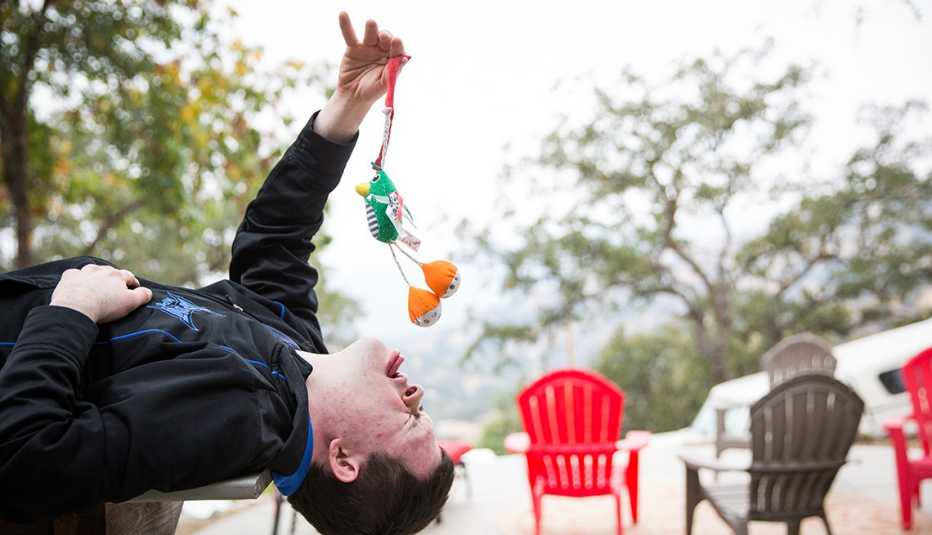Staying Fit


Clarence “Corky” Conover, 60, and Norma Nevarez, 56, of Three Rivers, Calif., care for their son Kevin, 23, who has Down syndrome and autism and has been nonverbal since he was about 2. (The couple’s two other children are developmentally normal and are in college and medical school.) For many years, Norma, a licensed nurse, was the primary caregiver; since Corky retired from the National Park Service in 2014, he has carried the torch.
"Sometimes I have to be a persistent advocate with doctors..."


Norma: I took care of Kevin while Corky was working and gave up my career. I was a little resentful about that, so now I’ve taken a secondary role. When Kevin was very young, he was in a neighborhood school because I wanted him to see normal behavior by being around normal kids. We really had to fight for that and we won with the help of a pro bono lawyer. Kevin was able to do that for a few years. For a while he participated in an adult program, but we live in the country and it was a 45-minute drive each way, so now he stays at home. I still coordinate a lot of his medical care — like recently, he had two MRIs and an eye exam under one anesthesia. Sometimes I have to be a persistent advocate with doctors because he’s had a lot of medical issues over the years, and it’s always a guessing game to try to figure out what’s bothering him since he can’t communicate.


AARP Membership— $12 for your first year when you sign up for Automatic Renewal
Get instant access to members-only products and hundreds of discounts, a free second membership, and a subscription to AARP the Magazine.


Corky: Recently, he’s gotten more aggressive toward himself; he’ll bang his head or hit himself if he’s in pain or frustrated. Kevin is a rooster — he gets up at 5:30 and wants something to eat. We keep him on a regular eating schedule because otherwise he’ll get angry. The kid really likes to eat and I try to give him some variety, but we have to watch his weight. I’ll bathe him and get him dressed, then we’ll go outside. We take a couple of walks every day and he likes to be in the yard. But he needs to be watched because he’ll put stuff in his mouth; he’s like a 2-year-old that way.
Norma: A lot of the time Kevin likes to do his own thing. He has a dangling, twirling baby toy that makes noises and he spends a lot of time engaging with it. He likes to swim and he can do it — he swims in circles — so we try to find opportunities for him to do that. Sometimes at home he’ll get up, come toward me and say ‘Mumumumumum,’ and I feel, like, wow — there’s a connection there! Other times he’ll come over and hug me, which makes me feel happy. Those moments are very positive and rewarding.
Corky: He definitely comes to us for comfort and he likes to hug us. When he’s really happy about something, it’s gratifying to see him enjoying himself. The two hardest things are that he can’t talk, so all we can do is try to imagine what it’s like to be in his position. The other thing is: It’s really difficult for us to find meaningful time for each other. We’ve been married for more than 31 years and we love each other and long to spend more time alone with each other. But we don’t have any good options for Kevin’s care since he can’t talk and he needs help with almost all activities of daily living. Our situation is quite challenging.
—As told to Stacey Colino

































































More on caregiving